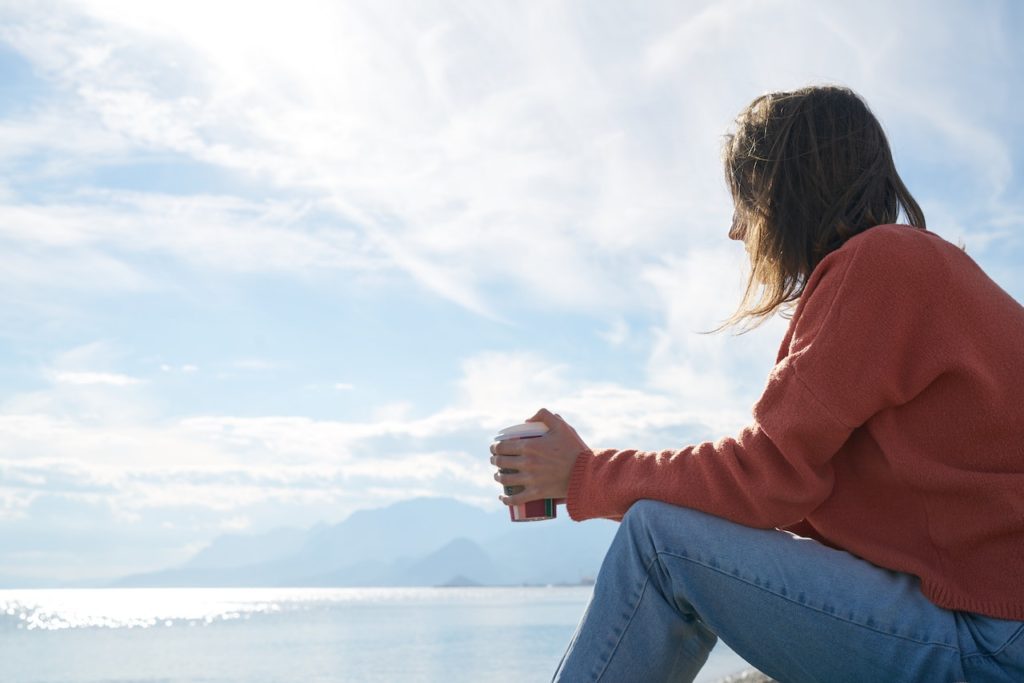Introduction

Resilience is a vital trait that enables individuals to navigate life’s challenges, setbacks, and adversities with strength and determination. It empowers us to bounce back, learn from experiences, and emerge stronger and more resilient than before. In this blog post, we will explore effective strategies for building resilience, overcoming obstacles, and transforming challenges into opportunities for personal growth. By adopting these techniques, you can cultivate resilience as a lifelong skill that will enhance your well-being and empower you to thrive in the face of adversity.
1. Embrace a Growth Mindset
Developing a growth mindset is crucial for building resilience. Embrace the belief that challenges are opportunities for learning and growth. View setbacks as temporary and solvable obstacles rather than insurmountable roadblocks. Cultivate a positive attitude that encourages curiosity, perseverance, and the willingness to adapt. By embracing a growth mindset, you reframe challenges as stepping stones toward personal development and transform setbacks into catalysts for growth.
When faced with a setback, analyze the situation objectively and identify the lessons you can learn from it. Focus on the process rather than the outcome, and celebrate your efforts and progress along the way. Cultivating a growth mindset allows you to maintain a positive outlook, embrace change, and see challenges as valuable opportunities for personal and professional growth.
2. Cultivate Self-Compassion
Self-compassion is an essential component of resilience. Treat yourself with kindness, understanding, and acceptance during difficult times. Acknowledge your emotions and allow yourself to grieve or experience frustration without judgment. Practice self-care activities that nurture your physical, mental, and emotional well-being. By cultivating self-compassion, you develop the strength to bounce back from setbacks and face challenges with greater resilience.
Developing self-compassion involves practising self-awareness and self-care. Pay attention to your needs and prioritize self-care activities that replenish your energy and promote well-being. Practice self-compassionate self-talk, replacing self-criticism with understanding and encouragement. Treat yourself as you would treat a close friend who is going through a tough time. By cultivating self-compassion, you build a solid foundation of self-support that allows you to navigate challenges with resilience and grace.
3. Seek Support Networks
Building a strong support network is crucial for resilience. Surround yourself with positive and supportive individuals who inspire and motivate you. Share your challenges and seek guidance from trusted friends, family, or mentors. Engage in communities or support groups where you can find empathy, encouragement, and advice from others who have overcome similar obstacles. Remember, seeking support is not a sign of weakness but a testament to your strength and resilience.
Connect with individuals who uplift and empower you. Share your experiences and challenges with them, and be open to receiving support and guidance. Engaging with like-minded individuals allows you to gain valuable insights, learn from their experiences, and develop a sense of belonging. Your support network can provide a safe space for expressing emotions, brainstorming solutions, and gaining perspective. Together, you can navigate challenges, celebrate successes, and foster resilience as a collective.
4. Develop Problem-Solving Skills
Enhancing your problem-solving skills is essential for overcoming challenges. Break down complex problems into smaller, manageable tasks. Identify potential solutions and weigh their pros and cons. Develop a systematic approach to problem-solving that allows for flexibility and adaptability. Embrace a solution-focused mindset that emphasizes learning from failures and iterating on your approach. By honing your problem-solving skills, you equip yourself with the tools necessary to tackle challenges head-on.
When faced with a challenge, take a step back to evaluate the situation objectively. Identify the root causes and explore potential solutions. Break the problem into smaller, actionable steps, and prioritize them based on their importance and impact. Be open to trying new approaches and adapting your strategies along the way. Remember, setbacks are opportunities for learning and growth. Reflect on the lessons you’ve learned from past challenges and apply them to your current situation. By developing problem-solving skills, you become more resilient, resourceful, and effective in navigating obstacles.
5. Practice Emotional Regulation

Emotional regulation plays a crucial role in building resilience. Learn to identify and manage your emotions effectively, especially during challenging situations. Practice mindfulness techniques, deep breathing exercises, or journaling to process and express your emotions in a healthy way. Cultivate self-awareness to understand the triggers that impact your emotional state. By regulating your emotions, you can approach challenges with a clearer mind, make rational decisions, and maintain a positive outlook.
Developing emotional regulation skills starts with self-awareness. Take time to identify and understand your emotions, their causes, and their impact on your thoughts and actions. Practice mindfulness techniques to stay present in the moment, observe your emotions without judgment, and choose how to respond rather than react impulsively. Engage in activities that promote emotional well-being, such as exercise, meditation, or creative outlets. By regulating your emotions, you develop the resilience to face challenges with composure, adaptability, and a healthy perspective.
For more, read Emotional Regulation: 6 Key Skills to Regulate Emotions.
6. Foster a Sense of Purpose
Having a sense of purpose provides direction and resilience during difficult times. Reflect on your values, passions, and long-term goals to identify your purpose. Align your actions and decisions with your purpose, as it will serve as a guiding light during challenging situations. Cultivate gratitude for the opportunities to grow and learn from setbacks. By nurturing a sense of purpose, you can draw upon your inner strength and determination to overcome obstacles and forge a path of personal growth.
Take time to explore and define your purpose in life. Reflect on your values, strengths, and the activities that bring you joy and fulfillment. Identify long-term goals that align with your purpose and create a roadmap for achieving them. Break down your goals into actionable steps and celebrate each milestone along the way. Embrace challenges as opportunities to test your commitment to your purpose and refine your path. By fostering a sense of purpose, you infuse your journey with meaning and resilience, empowering yourself to overcome any obstacles that come your way.
7. Learn from Failure and Adapt
Failure is an inevitable part of life, and it is essential to learn from it to build resilience. Embrace failure as an opportunity for growth and learning. Reflect on the lessons you can extract from each setback and use them to adapt your strategies and approach.
Recognize that failure does not define you but provides valuable insights and experiences that can propel you forward. By embracing a growth mindset towards failure, you develop the resilience to bounce back, adjust your course, and strive for success.
8. Cultivate Optimism and Gratitude
Optimism and gratitude are powerful tools for building resilience. Cultivate an optimistic outlook by focusing on the positive aspects of your life and maintaining a hopeful attitude, even in challenging times. Practice gratitude by expressing appreciation for the blessings and opportunities that come your way.
Research shows that an optimistic and grateful mindset can enhance resilience and overall well-being. By nurturing these positive emotions, you develop the resilience to see beyond obstacles, maintain a sense of hope, and find the strength to persevere.

9. Engage in Continuous Learning and Personal Growth
Continuously seeking personal growth and expanding your knowledge is instrumental in building resilience. Embrace a mindset of continuous learning and improvement. Seek out new experiences, acquire new skills, and challenge yourself intellectually and emotionally.
Engaging in personal growth activities such as reading, attending workshops, or taking courses helps you broaden your perspective, develop new coping mechanisms, and build resilience. By investing in your personal growth, you equip yourself with a wider range of tools and perspectives to tackle challenges with resilience and adaptability.
10. Practice Self-Reflection and Journaling
Self-reflection and journaling are powerful practices for building resilience. Set aside regular time for self-reflection to assess your emotions, thoughts, and actions. Journaling can be a valuable tool for expressing your feelings, processing experiences, and gaining clarity. For help getting started, try 32 Journal Prompts for Self-Reflection and Self-Care.
Through self-reflection, you can identify patterns, strengths, and areas for growth. It enables you to develop self-awareness, understand your triggers and reactions, and make intentional choices in challenging situations. By incorporating self-reflection and journaling into your routine, you deepen your understanding of yourself and develop the resilience to respond effectively to life’s challenges.
Conclusion
Building resilience requires intentional effort and practice, but the rewards are invaluable. By adopting strategies such as learning from failure, cultivating optimism and gratitude, engaging in continuous learning, and practising self-reflection and journaling, you strengthen your resilience muscle.
Remember that resilience is not about avoiding or suppressing difficult emotions but about acknowledging them, learning from them, and using them as catalysts for personal growth. With resilience as your foundation, you can navigate life’s challenges with grace, adaptability, and a renewed sense of purpose.
Embrace these strategies, and let resilience guide you on a transformative journey of personal growth and empowerment.

